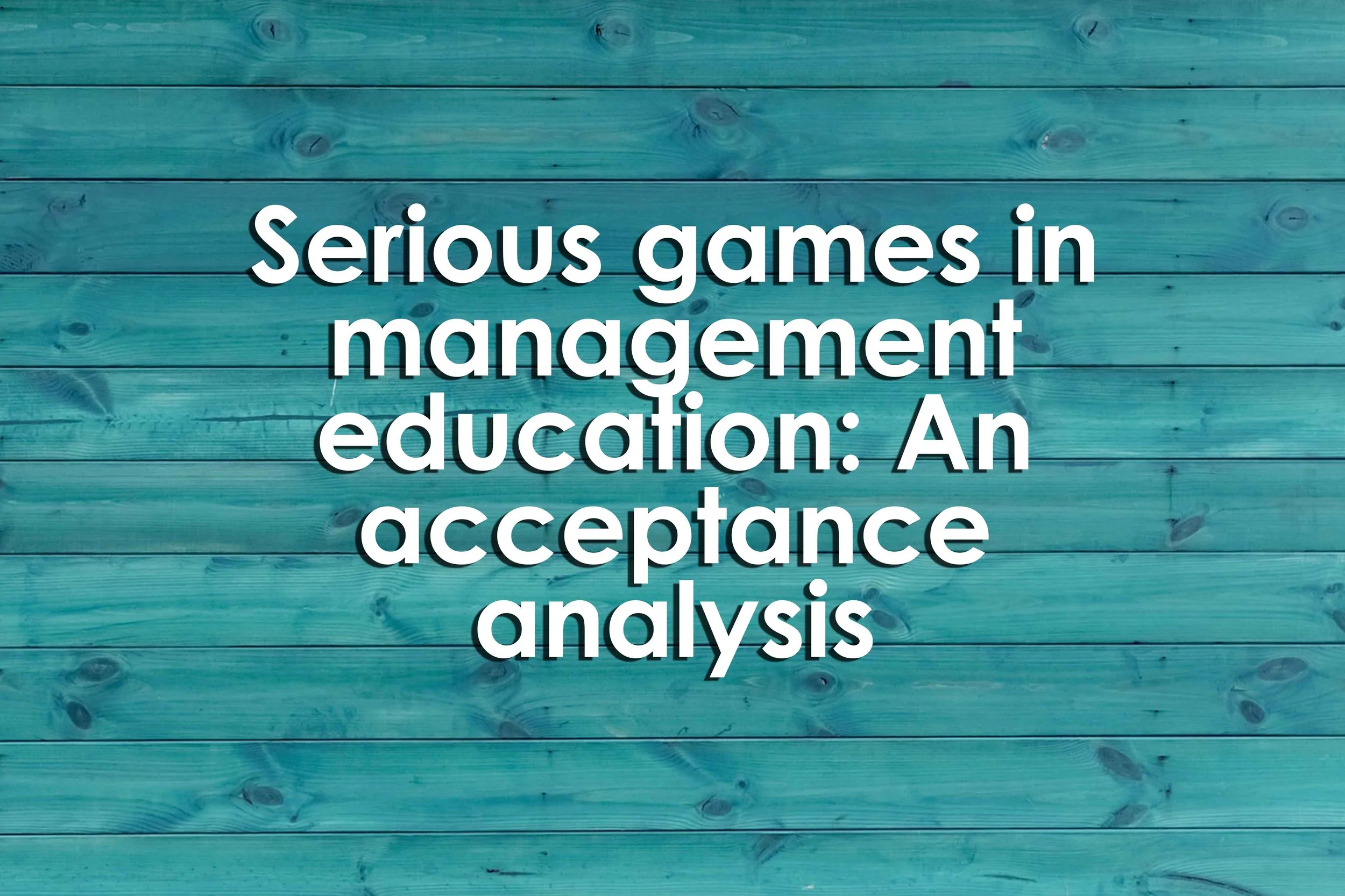Serious games in management education: An acceptance analysis
Serious games in management education: An acceptance analysis
Serious games in management education: An acceptance analysis
By Fernando Rodríguez López, Mario Arias-Oliva, Jorge Pelegrín-Borondo, and Luz María Marín-Vinuesa
Abstract
“Training is a key resource for fostering knowledge as a competitive asset. As in other fields, in learning, innovation emerges with disruptive methods such as gamification. Serious games are a proven efficient training method based on the incorporation of traditional elements of games, such as entertainment, into learning. But as with any other innovation, people must be willing to use the new method. The use of even a proven serious game will not have any positive effect if students do not accept it. It is thus essential to analyze the intention to use serious games in management training contexts. This research uses an adapted CAN (Cognitive-Affective-Normative) model to explore the intention to use a serious game – Lego© Serious Play© – in a sample of higher-education students in their capacity as future professionals. The results show that the most critical factor influencing the intention to use serious games is expected learning performance. The proposed model opens a new methodology for studying the behavioral intention to use other innovative management-training methods and to enrich the deployment of serious game training strategies in management education.”
Reference
López, F. R., Arias-Oliva, M., Pelegrín-Borondo, J., & Marín-Vinuesa, L. M. (2021). Serious games in management education: An acceptance analysis. The International Journal of Management Education, 19(3), 100517. doi:10.1016/j.ijme.2021.100517 https://www.sciencedirect.com/science/article/pii/S1472811721000665
Keyword
Serious games, management education, gamification, research

